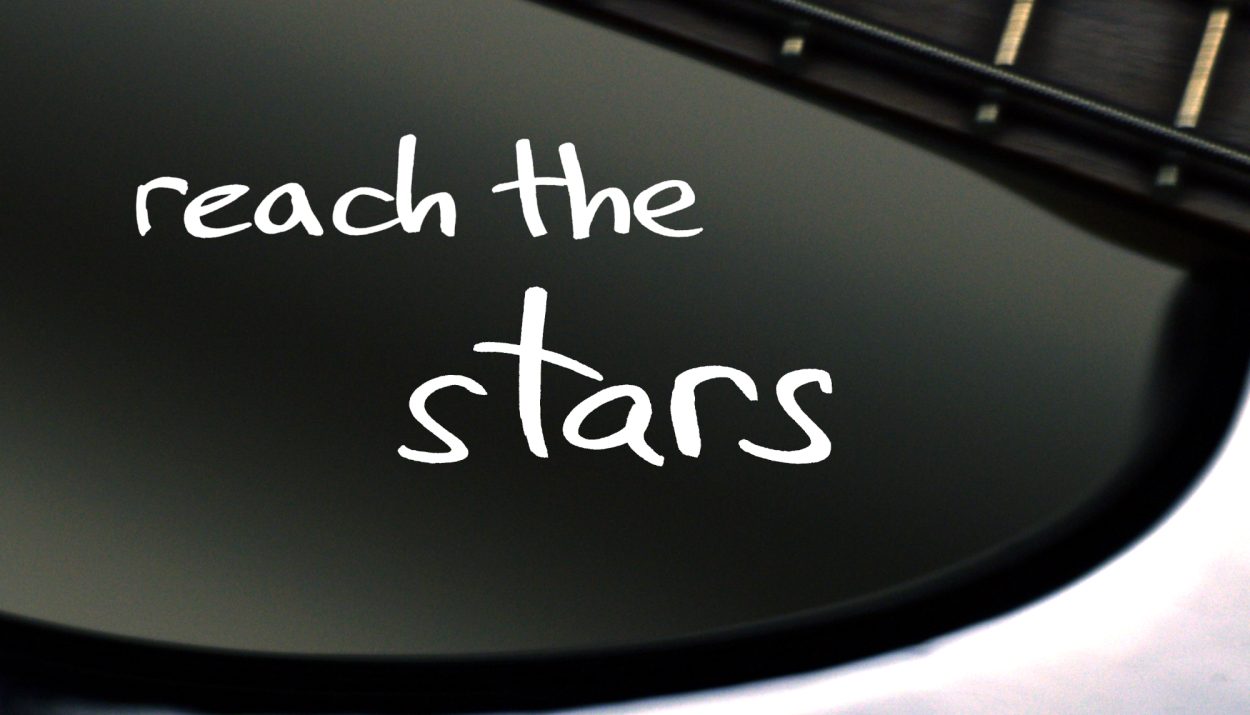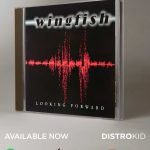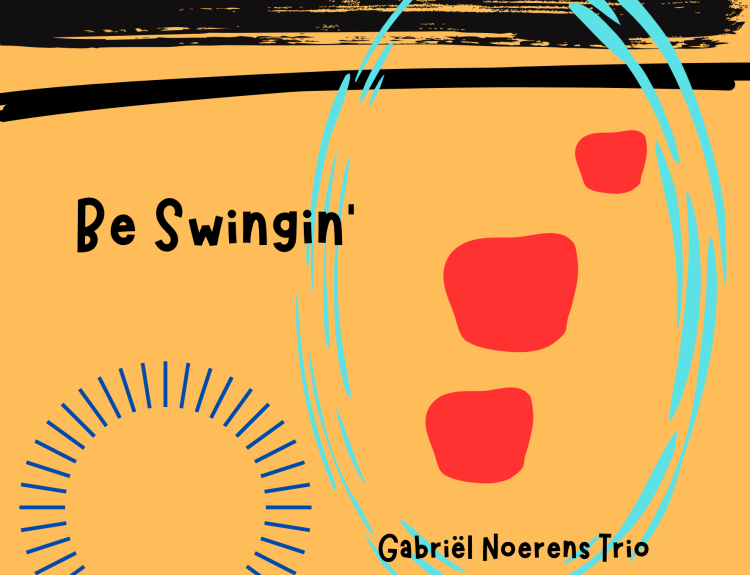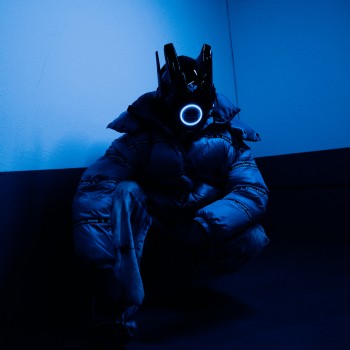Last year, we were swept into the soaring debut feature of Alex Wellkers through his inspiring album ‘Let’s Fly,’ an ambitious record that revealed his gift for storytelling, his ear for cinematic soundscapes, and his ability to balance vulnerability with power. Now, Wellkers returns with his latest album, ‘Reach the Stars,’ and it feels less like a continuation and more like an ascension. Where ‘Let’s Fly’ was a statement of arrival, ‘Reach the Stars’ is a coronation; dramatic, fearless, and overflowing with a rich blend of rock and pop textures woven together by classical instruments, harps, and sweeping strings.
This is an album of scale and intimacy, where the grandeur of orchestration is matched by the grit of his rocky voice and the intimacy of piano- and guitar-led storytelling. And while Alex remains the architect of it all; writing, composing, arranging, producing, and performing, he’s flanked by an army of talented session musicians whose contributions elevate the record to something orchestral and timeless. Let’s get into the album’s track-by-track Journey.
“We Knew It All” opens the record like a cinematic curtain-raiser. Harps by Mercedes Bralo glisten like sunlight over waves, strings swell, and Adam Ward’s acoustic guitar dances delicately under Wellkers’ heartfelt vocal delivery. His voice has a weathered strength here, carrying an emotional weight that makes the opening track feel like a memory and a prophecy. The themes revolve around love and recognition—of knowing someone so deeply it feels like the universe itself confirmed it.
“Bring Me The Keys” follows with urgency. There’s a restless energy in the violins and violas, played with passionate intensity by Julia Stein and Mariia Vakhnenko, while Ivan Korniienko’s drums ground the track in rhythmic force. Lyrically, the song touches on longing for freedom, for unlocking something hidden or denied. Wellkers’ delivery turns demanding and fiery, his rocky voice breaking through the orchestral backdrop like a storm.
“See Me There” brings in a saxophone glow courtesy of Dima Faustov, giving the track a jazzy melancholy. Thematically, it’s a plea for presence, for visibility in a world that easily forgets or overlooks. The combination of sweeping strings and piano (Phil Gardiner) creates a nocturnal, almost romantic palette. Wellkers’ vocals lean into desperation and vulnerability, reminding listeners of his cinematic romantic self-description.
“Desert Island” takes us into isolation—an imagined exile. Harps return, this time more reflective, with Mercedes Bralo guiding the outro. The song juxtaposes solitude with longing, painting the picture of emotional shipwreck. Faustov’s saxophones breathe life into the barren imagery, making the song less about abandonment and more about survival. Wellkers’ vocals here ache with restraint, as if sung from a distance.
“There Is Cars” (delightfully enigmatic in title) introduces lap steel guitar by Luca Giannotti, adding a folksy twang to the layered rock ballad. Akito Goto’s cello grounds the emotional undertow while Brian Barber’s piano provides warmth. Lyrically, it hints at modern alienation—technology, speed, and our search for connection amidst the chaos of moving vehicles.
“alles nicht so schlimm” (German for “it’s not so bad”) surprises with multilingual openness. Harps from both Mercedes Bralo and Joanne Moo sparkle with European elegance, while saxophones weave in an almost Parisian nocturne. Wellkers’ vocals here are more tender, introspective, offering a glimmer of reassurance amid life’s turbulence.
“Tu es ici” (“You are here”) continues the multilingual thread, this time in French. Catherine Dury’s flute gives the song a pastoral grace, while Luciano Andrés Ledesma’s piano lays the emotional foundation. The song meditates on presence, being rooted in the moment, the beauty of existence. Wellkers sings with sincerity, his rocky voice softened into a gentle embrace.
“She Will Say” is carried by Iryna Markevych’s violin and Dury’s flute. It feels like a folk ballad caught between hope and hesitation. Faustov’s saxophones return with bittersweet poignancy. Lyrically, it revolves around choices and consequences—the unknown of what “she will say.” Wellkers’ delivery leans vulnerable, almost hesitant, as though caught between hope and heartbreak.
“The Key” strips things back with a raw, percussive performance—acoustic guitars by Nicholas Van Hines take center stage. Thematically, it’s about discovery, unlocking personal truths. His vocals are determined, intimate, placing the listener right at the heart of his inner world.
“Mystic Saint” leans heavily into spiritual, almost sacred territory. Strings and cello (Noelia Diaz) craft a sense of reverence while Wellkers’ vocals turn solemn yet commanding. It feels like a hymn dressed in rock and classical clothes, an invocation to something beyond.
“What Are You Searching For” continues the spiritual undertones but in a questioning form. Julia Stein’s strings carry yearning, while Kyle Abbott’s drums give it pulse and urgency. Wellkers’ vocals here embody the seeker, balancing questioning with quiet resolve.
“Now The Pages Been Turned (Acoustic)” is intimate, stripped back to Nicholas Van Hines’ guitar. It feels like a journal entry set to song—confessional, warm, and vulnerable. His voice cracks here in the best way, showing unfiltered honesty.
Finally, “Au Revoir” closes the album with cinematic grandeur. Strings swell under Akito Goto’s cello, while acoustic guitars by Andrew Timothy guide the emotional farewell. This song is both goodbye and promise, an ending that suggests continuation. The French title frames it less as a final farewell and more as “until we meet again.”
Wellkers’ voice remains the anchor of ‘Reach the Stars.’ It’s a rocky, weathered vocal that carries grit and tenderness in equal measure. At times commanding, at times trembling with fragility, his delivery is always honest—never overpolished, always lived-in. This emotional authenticity elevates the entire record, making even the most orchestral moments feel deeply personal.
Mixed by Stephan Steiner and mastered by Dan Suter, the production achieves a remarkable balance: orchestral instruments feel lush yet never overpower Wellkers’ vocals or rock foundations. The strings soar, harps shimmer, flutes whisper, and saxophones sigh, while guitars and pianos provide intimacy and grounding. The inclusion of so many session musicians—each lending their distinct timbre—creates a living, breathing world of sound. Yet, at the core, it’s unmistakably Wellkers: the composer, the producer, the architect of this dramatic soundscape.
In conclusion, ‘Reach the Stars’ is a journey through memory, longing, spirituality, and presence. Alex Wellkers has taken his cinematic rock-pop vision and expanded it into a symphonic odyssey, weaving languages, cultures, and emotions into a unified, breathtaking statement. For those who discovered him with ‘Let’s Fly,’ this is the evolution we hoped for. For newcomers, this is the perfect entry point into the world of a true cinematic romantic.
Listen to the “Reach the Stars” album on Spotify,
You can follow Alex Wellkers here for more information.






